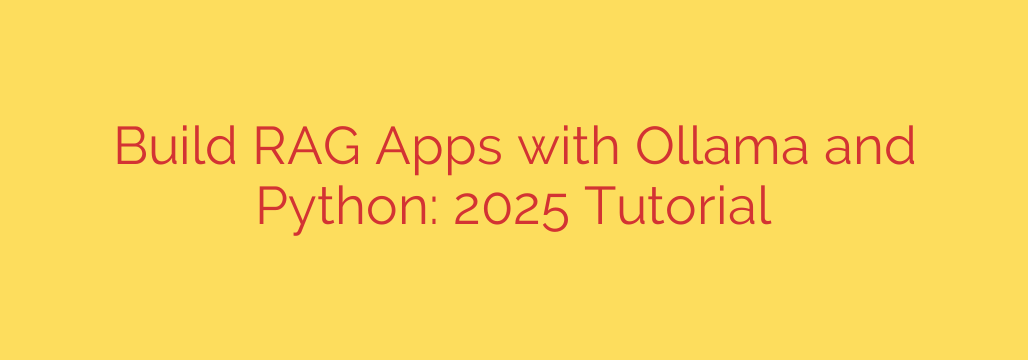
Building powerful AI applications that can leverage your own private data is now more accessible than ever. A key technique enabling this is Retrieval Augmented Generation (RAG). This approach allows large language models (LLMs) to provide answers based on a specific body of knowledge, going beyond their initial training data and reducing hallucinations.
To implement RAG effectively, especially while maintaining data privacy and controlling costs, using local resources is a compelling option. The combination of Python for development and Ollama for running LLMs locally provides a robust framework.
The core process typically involves several critical steps. First, you need to load and process your source data – this could be documents, articles, or any text-based information relevant to your application’s domain. Next, you create embeddings for this data. Embeddings are numerical vector representations that capture the semantic meaning of the text. These embeddings are then stored in a vector store, a specialized database optimized for quick similarity searches.
When a user poses a query, that query is also converted into an embedding. This query embedding is then used to search the vector store for the most semantically similar document chunks (retrieval). The retrieved chunks of relevant information, along with the original user query, are then passed to a local LLM running via Ollama. The LLM uses this combined context to generate a relevant and informed response (generation).
This methodology ensures that the model’s response is grounded in your specific data. Using Ollama allows you to experiment with various open-source LLMs without external dependencies or API costs, directly on your hardware. Python provides the flexibility and extensive libraries needed to manage the data loading, embedding creation, vector store interaction, and orchestrate the calls to Ollama.
Mastering these steps empowers you to build custom AI applications tailored to specific needs, whether it’s a personal knowledge base chatbot, a domain-specific question-answering system, or an internal document assistant, all running efficiently and privately using local resources. This approach represents a significant step forward in building intelligent systems that are both powerful and practical.
Source: https://collabnix.com/building-rag-applications-with-ollama-and-python-complete-2025-tutorial/








